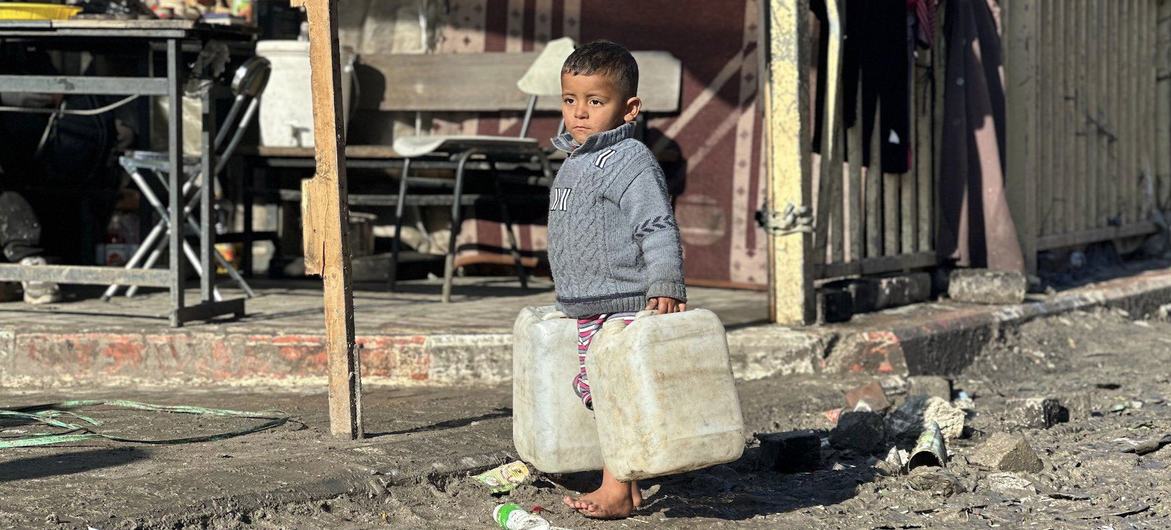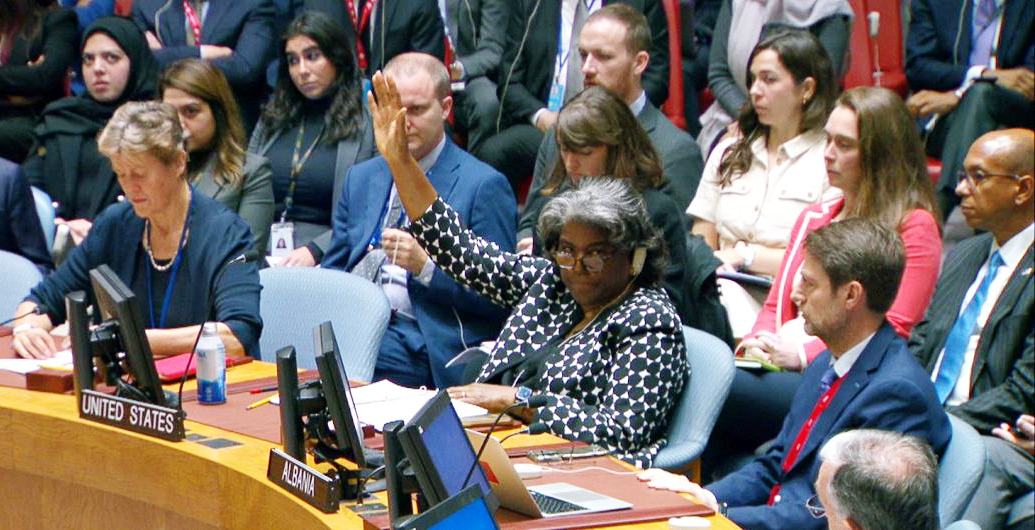by Asad Mirza
The ongoing conflict in Palestine has revealed the intricate cobweb of false promises, ambiguous stands and false jubilations by the Western nations on adopting a hollow UN resolution.

As the Israeli aggression against Palestine entered its seventh month, the world witnessed several unrelated events or proclamations adopted by the Western powers to get the genocide stopped in Palestine. Though at first glance, most of these incidents seem unrelated but at closer scrutiny we find that these are related to one another and are playing or may play a definitive role in resolving the conflict.
Let us try to analyse and see how these unrelated incidents are related and have a bearing on the ongoing conflict.
The first event, on the last day of March, saw at the ground level the increasing protests against the Benjamin Netanyahu-led government in Israel. On March 30, tens of thousands of Israelis gathered across Tel Aviv and other occupied cities for protests against their Prime Minister, Benjamin Netanyahu.
For the first time, the families of the Israeli prisoners being held by the resistance in Gaza, who normally hold separate rallies, joined the massive crowds of anti-government protesters – whose movement initially started with the prime minister’s controversial judicial overhaul initiative last year. After nearly six months of war, hostages’ families join with anti-government rallies
Demonstrators also clashed with police in Jerusalem, where around 200 rampaged through police barricades to protest outside Netanyahu’s home in the occupied holy city. In occupied Caesaria, protesters were arrested while cutting off roads near the prime minister’s residence. Protests erupted in several other occupied cities, including Sderot, Or Akiva, and Beersheba. These were the largest demonstrations since the outbreak of the war on October 7, The Times of Israel reported.

Amal, 7, contemplating her neighbourhood after neighbouring homes were levelled to the ground.
Secondly, this contrasts with the continued US support to Israel on the one hand and its diplomatic and political overtures on the continuing conflict. Historically, there has been broad bipartisan support in the US for Israel. But the situation in Gaza has evolved into divided opinion, in the US – a significant section of Americans is now critical of both Israel’s action and the full US backing for it.
Though at the ground level, US President Joe Biden seems to be supporting the Israeli government but at the political level, he is seen trying hard to win over the Muslim population and even the younger American population who stand against Israeli aggression, and who may tilt the scales against him in the presidential elections.
Despite an overall disapproval rate of 57 per cent among registered voters towards President Biden’s handling of the conflict, it is particularly noteworthy that young voters express the strongest objections. A recent The Times/Siena survey reveals that a significant 72 per cent of voters aged 18-29 disapprove of President Biden’s efforts in managing the situation.
Thirdly, due to this reason, the US felt it was politically prudent to not use its veto to block the call for an immediate ceasefire at the United Nations. Only a couple of days earlier, the US itself had sought to move a resolution calling for a ceasefire and release of hostages, which was vetoed by Russia, which found some of the language unacceptable.
We should also note that historically, the United States has provided significant political support to Israel, frequently exercising its veto power at the United Nations Security Council. Out of a total of 83 instances where the US has used its veto power, 42 were used to block resolutions condemning Israel. Between 1991 and 2011, of the 24 vetoes cast by the United States, 15 were specifically employed to shield Israel from censure. However this time, the US and Biden administration have not backed Israel and allowed the resolution to pass.

Politically, to rally the Muslim population to his campaign, Biden held a fundraising event in New York to target the Muslim/Arab American voters along with former presidents Bill Clinton and Barrack Obama. Perhaps thinking, foolishly, that Hussein Obama may be able to win over the Arab Americans. But in reality, demonstrators harangued the trio.
Winning over Arab Americans is important in the context of the presidential election in November. For President Joe Biden, the Arab and Muslim vote, as well as the vote from the Democratic Party’s left wing, are crucial – and these voters have been critical of Israel. Swing states like Michigan and Wisconsin (both of which were won by Biden in 2020) have significant Muslim populations and will be crucial for the President in his likely rematch with Donald Trump. Also, many Arab countries, some of which are important partners to the US, are growing increasingly concerned about Israel’s actions.
In reality, the US has taken this position at the UN in a very specific situation. Its leaders remain invested in the broader US-Israel relationship. They do not identify all of Israel with Netanyahu, whose relations with the current US administration have deteriorated significantly. Earlier this month, Senate majority leader Chuck Schumer described Netanyahu as an obstacle to peace, and called for early elections in Israel – this is the line that the Democrats are taking, distancing themselves from the ruling dispensation and their political choices, but not necessarily from Israel.
So Biden’s outreach to American Muslims and the US support for the UN resolution should not be seen in isolation, but together, as a ploy by Biden to win over his supporters and critics. In addition, young American voters, who see this war as unnecessary and criticise Biden and Democrats for it, also have to be won over by Biden.

Meanwhile, hours after Biden’s early-April statement, the Washington Post reported that his government had signed off on additional bombs and warplanes for Israel in recent days worth billions of dollars.
This shows the real face of the US-Israel relationship. When we start connecting the dots then we realise that come what may, the US will continue to support Israel overtly and covertly and foil any plans, which might be able to establish peace in the region. As the Middle East region on the boil serves the trade, defence and political aims of the US.
(Asad Mirza is a senior journalist based in New Delhi. In his career spanning more than 20 years, he was also associated with BBC Urdu Service and Khaleej Times of Dubai. Views are personal.)















